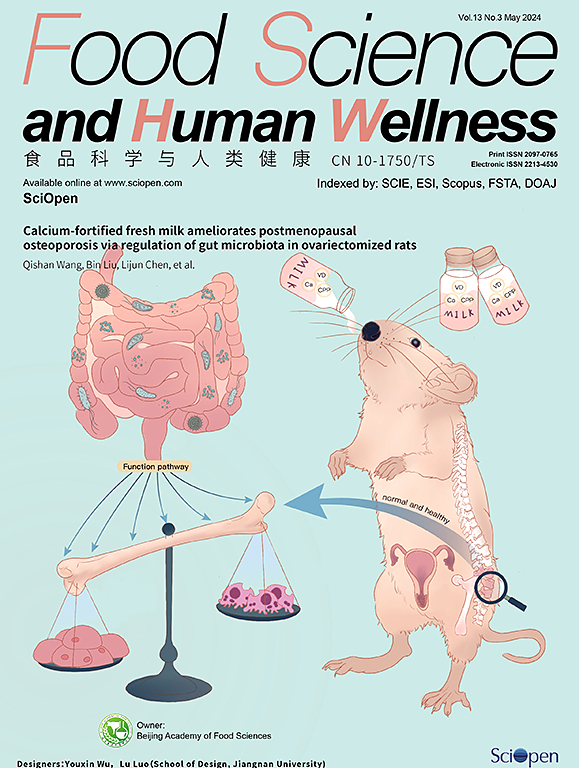Transcriptomic analysis of molecular mechanisms underlying the biodegradation of organophosphorus pesticide chlorpyrifos by Lactobacillus delbrueckii ssp. bulgaricus in skimmed milk
IF 7.4
1区 农林科学
Q1 FOOD SCIENCE & TECHNOLOGY
引用次数: 0
Abstract
Bioremediation of organophosphorus pesticides in contaminated foodstuffs using probiotics has been increasingly under the spotlight in recent years, though the biodegradation mechanism and derived intermediate products remain unclear. This study aimed to help fill this knowledge gap and examined the degradation mechanism of organophosphorus pesticide, chlorpyrifos, in milk by Lactobacillus delbrueckii ssp. bulgaricus using gas chromatography- tandem mass spectrometry (GC-MS/MS) combined with transcriptome analysis. After the strain was cultured for 20 h in the presence of chlorpyrifos, differential expressions of 383 genes were detected, including genes probably implicated during chlorpyrifos degradation such as those related to hydrolase, phosphoesterase, diphosphatase, oxidoreductase, dehydratase, as well as membrane transporters. GC-MS/MS analysis revealed the changes of secondary metabolites in L. bulgaricus during milk fermentation due to chlorpyrifos stress. 6-Methylhexahydro-2H-azepin-2-one, 2,6-dihydroxypyridine and methyl 2-aminooxy-4-methylpentanoate as intermediates, along with the proposed pathways, might be involved in chlorpyrifos biodegradation by L. bulgaricus.
脱脂乳中的保加利亚乳杆菌生物降解有机磷农药毒死蜱的分子机制转录组分析
近年来,利用益生菌对受污染食品中的有机磷农药进行生物修复日益受到关注,但其生物降解机制和衍生的中间产物仍不清楚。本研究旨在填补这一知识空白,采用气相色谱-串联质谱法(GC-MS/MS)结合转录组分析,研究了保加利亚乳杆菌对牛奶中有机磷农药毒死蜱的降解机制。在毒死蜱存在下培养该菌株 20 小时后,检测到 383 个基因有不同的表达,其中包括可能与毒死蜱降解有关的基因,如与水解酶、磷酸酯酶、二磷酸酶、氧化还原酶、脱水酶以及膜转运体有关的基因。气相色谱-质谱/质谱分析表明,在牛奶发酵过程中,由于毒死蜱胁迫,保加利亚鹅膏菌中的次生代谢物发生了变化。作为中间产物的 6-甲基六氢-2H-氮杂卓-2-酮、2,6-二羟基吡啶和 2-氨基氧基-4-甲基戊酸甲酯以及所提出的途径可能参与了保加利亚酵母菌对毒死蜱的生物降解。
本文章由计算机程序翻译,如有差异,请以英文原文为准。
求助全文
约1分钟内获得全文
求助全文
来源期刊

Food Science and Human Wellness
Agricultural and Biological Sciences-Food Science
CiteScore
8.30
自引率
5.70%
发文量
80
审稿时长
28 days
期刊介绍:
Food Science and Human Wellness is an international peer-reviewed journal that provides a forum for the dissemination of the latest scientific results in food science, nutriology, immunology and cross-field research. Articles must present information that is novel, has high impact and interest, and is of high scientific quality. By their effort, it has been developed to promote the public awareness on diet, advocate healthy diet, reduce the harm caused by unreasonable dietary habit, and directs healthy food development for food industrial producers.
文献相关原料
公司名称
产品信息
阿拉丁
Chlorpyrifos
 求助内容:
求助内容: 应助结果提醒方式:
应助结果提醒方式:


